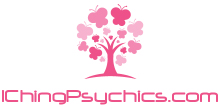 The I Ching also known as Book of Changes. It is an ancient Chinese divination text. Book of Changes was written around 1000 BC. Although it is thousands of years old, I Ching is one of the most sophisticated divination systems ever devised. the Book of Changes has been used by Chinese political and military leaders, as a source of guidance and wisdom, and as a tool to assist in strategic decision-making.
The I Ching also known as Book of Changes. It is an ancient Chinese divination text. Book of Changes was written around 1000 BC. Although it is thousands of years old, I Ching is one of the most sophisticated divination systems ever devised. the Book of Changes has been used by Chinese political and military leaders, as a source of guidance and wisdom, and as a tool to assist in strategic decision-making.
Talking about the benefits of I Ching consulting to make better decisions, here are some of the benefits of giving yourself an I Ching reading.
I Ching Benefits
The I Ching divination system was a human original change management tool. When it comes to a strategic decision-making tool, the I Ching guides us to enthuse our intuition, boost our creativity, improve our timing and make better decisions.
Make better decisions
Our level of success and happiness in all areas of life is measured by how good the decisions we make. No matter how much information you have, it’s normal to have doubts about whether you’re making the best decision or not.
 Consulting the I Ching makes dilemmas easier to resolve. In addition, I Ching provide us with support to help make decisions easier to live with. Stressful situations transform into definite opportunities, and confusing relationships can take a turn toward greater clarity and understanding.
Consulting the I Ching makes dilemmas easier to resolve. In addition, I Ching provide us with support to help make decisions easier to live with. Stressful situations transform into definite opportunities, and confusing relationships can take a turn toward greater clarity and understanding.
Mental relaxation
Studies have proven that focused relaxation is the best state of mind for intuition and creativity. The I Ching allows you to focus on personal importance issues with less stress aligning the conscious and subconscious mind so that they can coordinate with each other and connect with the spiritual dimension for extreme wisdom and effectiveness.
Accepting changes and taking tough choices
I Ching is not just a book of wisdom; it will also help you accepting changes and make tough choices easily. Through I Ching readings, it is possible to foresee events and adjust our actions and choices accordingly. Imaging how would your life change if you knew the events’ outcome in advance?
For example, if you are applying for the same job in two different companies. Both companies offer you same position with same salary and benefits. However, you still need to know which working environment will work best for you and which one is hard to bear. Of course, knowing the answer, will help you make a better decision.
I Ching seems extraordinary to me, in terms of its ability to multiply uncertainties, in its demonstrated efficacy whether by accident or by design. And if I still use this ancient divination tool, it is not because I want to escape from reason into the irrationality, nor is it because I believe the book contains a deep wisdom. Instead, it is the fact that the I Ching repeatedly prompts me to go beyond false certainties.
Have you ever read the I Ching? If so, what do you think about the book? If not, what are your thoughts about the book so far?


It’s fascinating to consider how the I Ching serves not only as a divination tool but also as a lens through which we can explore our own subconscious thoughts. The synthesis of intuition and analytical thinking is quite compelling.
‘A human original change management tool’? That’s quite an audacious claim! It’s almost like saying that consulting tea leaves or tossing coins could yield similar strategic insights. Where’s the empirical evidence?
The I Ching truly exemplifies the intersection of ancient wisdom and modern decision-making. Its ability to guide one through life’s complexities, while seemingly esoteric, is nothing short of profound. A remarkable tool indeed!
While I appreciate the historical significance of the I Ching, I can’t help but view it as a relic of superstition. Relying on a book for decision-making feels both archaic and imprudent in today’s data-driven society.
“Accepting changes and making tough choices”—isn’t that just life? Perhaps we should all consult the nearest oracle instead of putting in the hard work required for self-discovery. What a novel approach!
‘Foreseeing events’? If only it were that easy! Life’s unpredictability is what makes it worth living, after all. The I Ching may offer guidance, but it’s our individual experiences that truly shape us.
So let me get this straight: You want me to trust an ancient text instead of my own reasoning? How charmingly retro! But hey, if it works for you, who am I to judge your mystical adventures?
“Stressful situations transform into opportunities”—so basically, it’s a self-help mantra wrapped in ancient script? Love the concept but not sure about relying on fortune cookies dressed as philosophical texts.